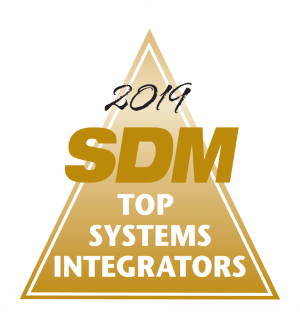SDM: Many organizations use outside information technology (IT) installing firms to handle their computer network installations. You’ve noticed that these firms are winning more and more jobs that security systems integrators used to get. Why is this happening?
KOSAKA: Now that integrated access control and security systems run on corporate data networks, IT personnel are getting more involved with those systems. Now all system upgrades have to go through IT.
Often, now the security director recommends equipment manufacturers and the IT people determine the manufacturer that will be best for the IT network. Installers are then found for that manufacturer. The final decision rests with IT.
The first thing IT asks is how security systems will affect their network. Now you’re talking data throughputs, usage on the network, and firewalls. Systems integrators have to understand networking questions and how their system affects the network.
A lot of IT people qualify PC hardware. They say everything has to run on this PC – such as a certain Dell model and a certain version of Windows. They may say, “Here are the routers we have. Can your system interface with this?†They want to know, “We aren’t going to have to hand-hold you, are we?â€
The ones who can answer these questions are the ones who will get the job.
The IT firms come in and say, “We’re doing the wiring anyway,†and the IT cabling is used by IT and by security. From the end-user standpoint, they’re saving on wiring. We’re seeing distributors that used to sell IT equipment to IT integrators that now have gone into selling security equipment.
SDM: What can security systems integrators do to avoid losing business to these IT firms?
KOSAKA: Security integrators have to have IT knowledge. Training is critical. The best way to get it is to go to IT networking classes and get certification from Microsoft, Novell and Cisco. Most security integrators don’t have Microsoft-certified technicians. But virtually all IT-based integrators are network-certified.
When security integrators have openings for technicians, they should look at IT-based technicians. Business is down at some of the large network equipment suppliers and because of that downturn, there are a lot of available technicians. We’re even hiring IT-based salespeople because if they aren’t knowledgeable in that area, too, it can hurt us. We’re also doing our own internal training on IT and encouraging salespeople to attend more IT-based seminars.
We work with a systems integrator in Latin America that was encountering more and more jobs that required technicians to be IT-based. The company purchased an IT-based installation company to get the knowledge and it was a very quick way for them to get into the market. They were also able to grow their business, not just in security, but also in time/attendance and phone systems, as well as IT installations. It increased their product portfolio. It also increased their lead base. Some leads still come from the traditional security market, but 30 percent to 40 percent of large jobs come out of the IT department, rather than security. Often the end-user asks the IT company if they know anybody who can do the security installation and this company can say, “Yeah, it’s us.â€
SDM: Do security integrators also have some special knowledge that IT firms might not have that they should be touting?
KOSAKA: The knowledge base of being able to set up sensors is better within the security industry. The IT installing firms would rely on consultants to tell them where to put things. But there are a lot of nuances in the IT world, too. Each area has special experience that you only learn by doing. The bottom line is you should learn both.
In our industry, access control and DVRs have gone IP-based, and intrusion protection systems and cameras are going that way. It’s not just a trend, it’s already here. If you’re not familiar with IP, you’re going to be left behind.


